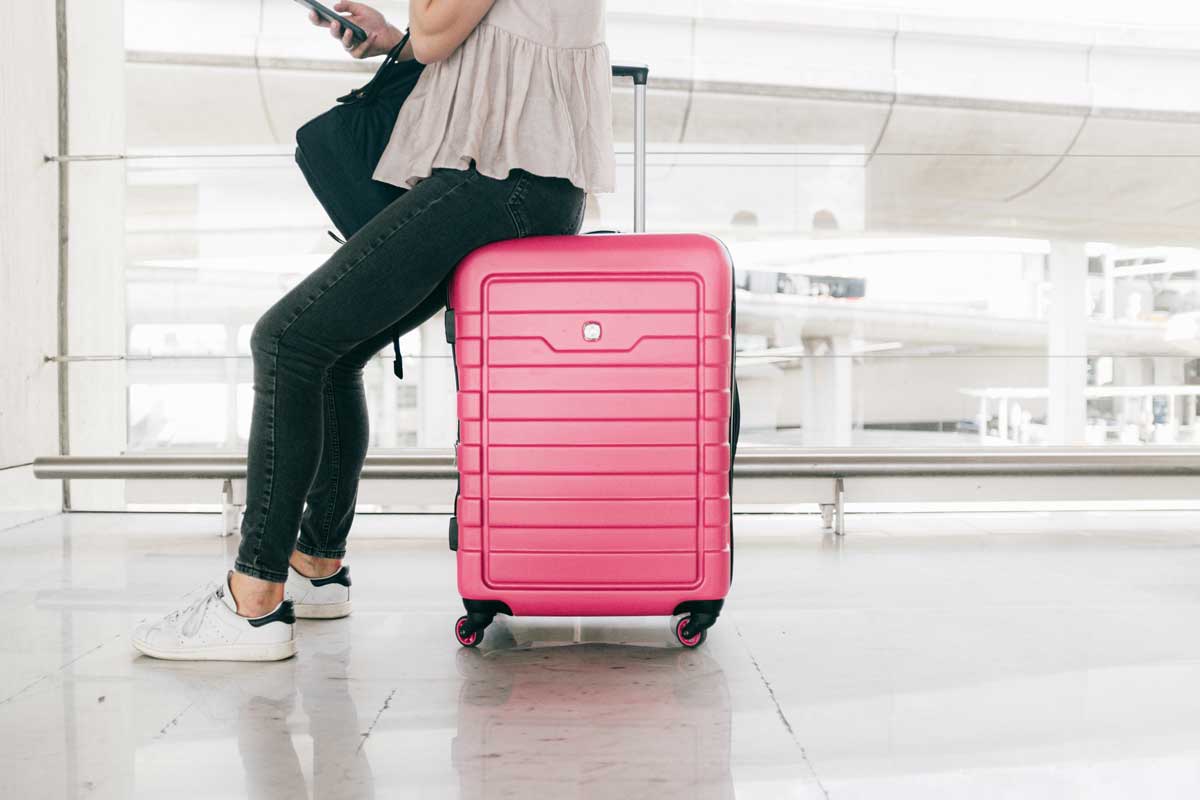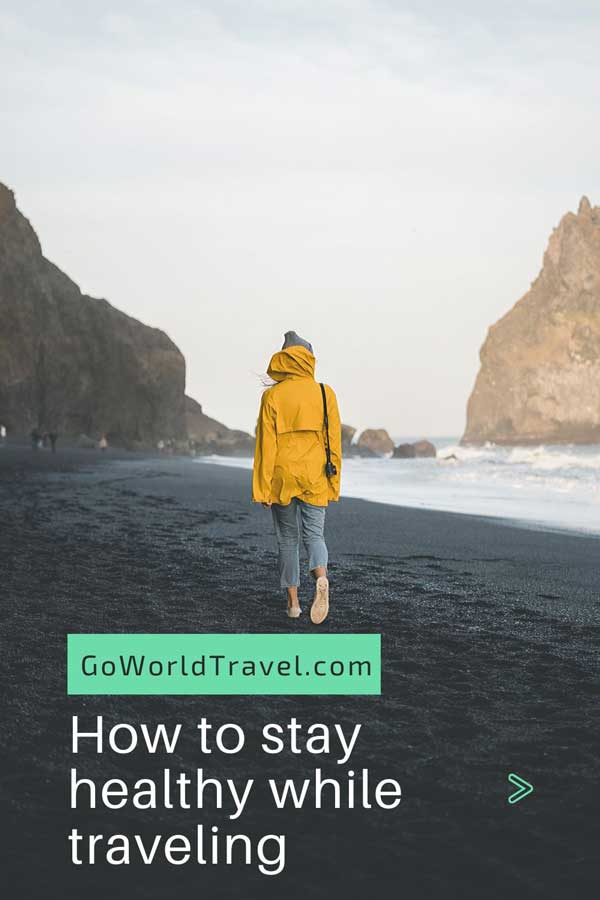
Traveling is one of my favorite things to do, and I’m often on the road. Over the years, I’ve learned a thing or two about staying healthy and comfortable while traveling. It’s helped that I’ve learned what to pack.
Staying Healthy While Traveling
It’s no fun to be sick while you’re on vacation, and you should do whatever you can to avoid it. I always pack comfortable shoes, and bring a hat, sunscreen and bug repellent. In some parts of the world, I stick to bottled water and avoid fresh cut fruits and vegetables.
First Aid Kit
And I always bring along a small first-aid travel kit, just in case a need arises. It’s only about five inches by 5 inches, but it has everything I need. Sure, I know I can buy many of these things while traveling but having them on hand when I need them is a plus.
Here’s what I pack in my first-aid travel kit:
1. Bandages
I do a lot of walking when I travel. Last week in NYC, for example, I walked about six miles a day – and that was in the city.
Sure, you want to look nice while traveling, but comfortable shoes are important. Make sure your shoes are worn in and have a good sole. (Now is not the time to buy new shoes.)
Walking down the cobblestone streets of Paris are no fun when you’re in pain. I can tell you this from first-hand experience. That’s where I learned to carry hydrocolloid gel bandages, just in case I get a blister.
These are adhesive bandages (or plasters, for my British friends) on steroids. They are extra thick and cushiony and will stay on for days, even in the shower. You can buy them in the supermarket, and they are well-worth the few extra bucks.

2. Travelan® for Digestive Upset
Traveling can do a real number on your gut, especially when traveling abroad. Digestive upset is a common traveler’s malady. One study found that almost 25 percent of travelers are affected by intestinal upset or occasional diarrhea.
A change in diet or routine can cause this, so can the stress of travel. Bowel distress or diarrhea can occur when you ingest food or water infected with bacteria, which attacks the intestines and releases diarrhea-causing toxins.
This is no fun, to say the least. Happily, it doesn’t have to spoil your holiday.
To help maintain normal bowel function, keep some Travelan® on hand, especially if you’re traveling to a region where there is an increased risk of occasional diarrhea. Travelan® is an over the counter (OTC) dietary supplement of clinically proven strength which offers digestive tract protection and helps the body to maintain normal bowel habits.
Travelan® reduces the risk of occasional diarrhea and supports a healthy digestive system by supporting the gut’s immune defenses. Travelan’s active ingredient, bovine colostrum enriched with anti-E. coli antibodies, has been shown to provide up to 90.9% protection against occasional diarrhea.
If you eat or drink anything that is contaminated with bacteria, the antibodies in Travelan® bind to the bacteria and the toxins they produce in the gastrointestinal tract. This neutralizes their ability to cause diarrhea.
In Australia, Travelan is a listed medicine and is specifically indicated to reduce the risk of Travelers’ Diarrhea. It’s available to purchase from Australian pharmacies. In Canada, Travelan is a licensed natural health product and can be purchased from Canadian pharmacies.
You can pick up some Travelan® on Amazon (readers can get 10% off here) or at Passport Health Clinics across America. For more information, see Travelan.com

3. Fiber and Laxatives
With travel often comes delicious food and wine, and all that rich food can make constipation an issue. Taking daily fiber pills while traveling can reduce the risk of constipation. If that doesn’t do the trick, having a laxative on hand can help.
One of my friends swears by a natural laxative tea that she buys at Sprouts, while others stick to over-the-counter laxatives from the local drugstore. Either way, having some on hand can help you feel better if the need arises.
4. Antihistamine Creams and Medicine
Despite using bug spray (okay, sometimes I forget to use it), the bugs of the world seem to like me. I’ve come home covered in bites from Jamaica, Australia, Manitoba, Florida and more. Having an antihistamine cream on hand can go a long way in reducing swelling and itching.
I have even used it when I had an allergic reaction to swimming in the Dead Sea. (Yes, folks, you can be allergic to the minerals in the Dead Sea.) You can find small, travel-sized antihistamine creams at any drug store. If you have seasonal allergies, don’t forget to pack your allergy medication as well.
5. Cold and Flu Medicine
Having the flu or even just a bad cold while traveling is no fun. I like having my tried-and-true cold and flu medicine on hand while I travel – especially my favorite daytime cold and flu medicine, which you can’t buy in Europe.
Take along the cold and flu medicine that you know works for you. That might just help you enjoy your travels even when you’re a little under the weather.
6. Sunscreen
Yes, it’s true that sunscreen is not medicinal, but it’s an important part of any traveler’s bag. Sun damage is no laughing matter. It not only ages you but can cause skin damage and even skin cancer. I prefer sunscreens with zinc oxide, which is more effective in cutting out the sun’s harmful rays.
If you’re traveling to the sea and plan to spend time in the ocean, be sure you buy “reef safe” sunscreen that will not damage the ocean environment.
7. Pain medication
Headaches? Back pain? Having pain medication like ibuprofen or acetaminophen on hand for things like this is helpful. Most drug stores sell tiny travel-size bottles.
8. Fingernail clippers
If I had a dollar for every time my traveling companions have asked to borrow mine… Yes, these are worth packing in your kit.

9. Motion sickness treatment
If you’re going to be on the sea or traveling by boat, consider taking along treatment for motion sickness.
You can buy over the counter medicine for motion sickness or ask your doctor about motion sickness patches.
I tried motion sickness prevention patches on a fishing vacation in Alaska last summer, and they worked perfectly. Although I usually get seasick in rough seas, I wasn’t sick at all and I came home with 75 pounds of salmon.
Enough said.
Editor’s Note: This post was developed in partnership with Travelan
- How to Renew a US Passport Quickly and Affordably - April 19, 2024
- 6 Reasons to Visit Portland, Maine (+ Travel Tips) - April 18, 2024
- Cruising with Discovery Princess on the Mexican Riviera - March 30, 2024


Thanks for sharing one of the best information
nice information . bookmarked this site. Thanks admin